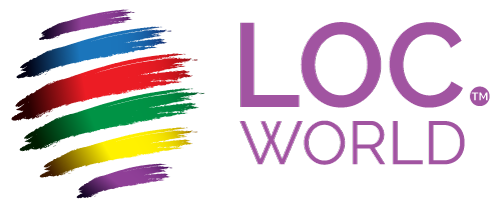 Life Sciences Business Round Table - Human Science Co., Ltd., Commit
Life Sciences Business Round Table - Human Science Co., Ltd., Commit
Track: Preconference | P01 |
Special Registration Requirement
Wednesday, April 13, 2016, 9:00am – 12:30pm
Held in: Tama
Presenters:
Takeyoshi Nakayama - Human Science Co., Ltd.
Clio Schils - CQ fluency
Saroj Vohra - IBM
Carl Yao - CSOFT International
Moderator: Clio Schils
In the world of translation and localization, the life sciences sector is different from any other industry because of the unique and specific nature of its requirements. With regulations changing on a continual basis, a premium is placed on quality above all else. For our Life Sciences Business Round Table in Tokyo, we are delighted to offer a stellar program with a particular focus on the challenges of life sciences localization. In this discussion forum, subject matter experts including clients and vendors will be presenting and sharing their thoughts and experiences on specific processes, as well as discussing the market entrance requirements and challenges in the life sciences industry in general.
We cordially invite life sciences professionals to attend, both clients who want to be updated on recent developments as well as life sciences service providers who want to establish local offices or create partnerships in the region to serve their global clients on-site. Presenters will be updating you on the developments in the region and presenting and sharing their thoughts and experiences on the subject matter. There will be less emphasis on presentations and more on interactive discussions. The main purpose of the round table sessions is to offer attendees valuable takeaways and best practices to share with their colleagues back home.
Tokyo 2016 Life Sciences Business Round Table Agenda
The discussions on April 13 will evolve but will not be restricted to the following topics:
Medical Device Market Trends in the Asia-Pacific Region
Speaker: Clio Schils, Sajan Inc.
The overall competitive economic climate and the continuous budgetary cost restrictions have forced many life sciences companies to explore new markets. Outsourcing and off-shoring larger portions of research and development, production processes and other areas of expertise to other markets have now become common practice. Due to their initial low-cost capabilities, growing markets such as Eastern Europe, BRIC and the Asia-Pacific region have become the place to be for global medical device and pharmaceutical companies, and for sponsors engaging in clinical studies and testing to develop their business. We will discuss the overall market developments, facts and figures in the Asia-Pacific region for life sciences, including medical devices, both from a commercial as well as regulatory perspective. We will not focus on product labeling itself, but more on the market mechanisms that undoubtedly will have an impact on labeling requirements for medical devices in that particular region.
Harnessing the Collective Knowledge of Life Science Experts for Improved Translation Quality
Speaker: Carl Yao, CSOFT International, Ltd.
“Doctors understand medical texts better.” The same is true in any number of industries. Industry experts are already in command of domain specific terminology and understand the way their industry speaks about its subject matter. However, until now, medical experts have not been widely able to participate in the translation process by taking on review or event translation tasks. Now, new mobile translation technology is able to harness the knowledge of these experts to help translate highly technical content for much better technical accuracy and improved readability. In this session, we will share experiences with an uber-esque translation service employing a mobile chat-based interface to allow subject matter experts to easily translate on their smartphones when and where they want. It gives life science experts a way to contribute to public knowledge and global development by translating industry-specific content in their free time. There is no better solution for improving translation quality than having people who are passionate about the subject matter do the translation themselves.
Machine Translation Best Practices for Life Sciences
Speakers: Takeyoshi Nakayama, Human Science Co., Ltd. and Saroj Vohra, IBM
Machine translation (MT) is often considered a cost-saving measure. Because quality is the most important aspect in life sciences translation, utilizing just MT will not meet customers’ needs. But what if MT can be used to improve translation quality? MT alone cannot generate translation with high enough quality for life sciences. So, instead of solo MT, have MT support the translators. Mixing human and machine efforts will generate a translation with the highest quality. Join this discussion to learn how life sciences can adopt MT best practices to improve the translation quality.
Clients, vendors and life science professionals from other disciplines are welcome to participate in this session. If you would like to participate in this round table, please contact Clio Schils to obtain the admission code necessary for registration.

